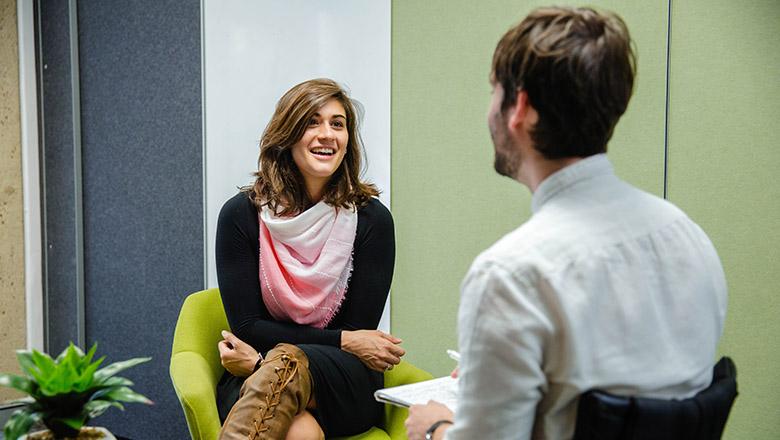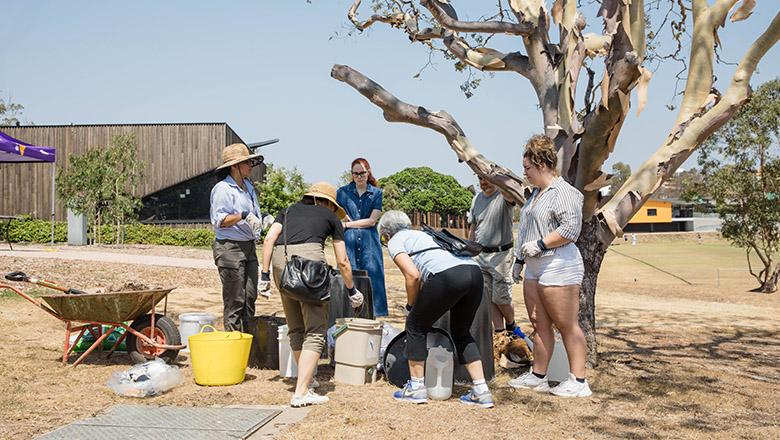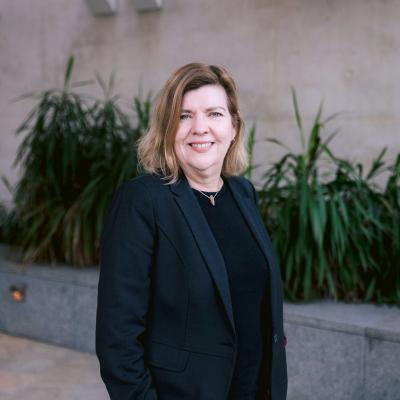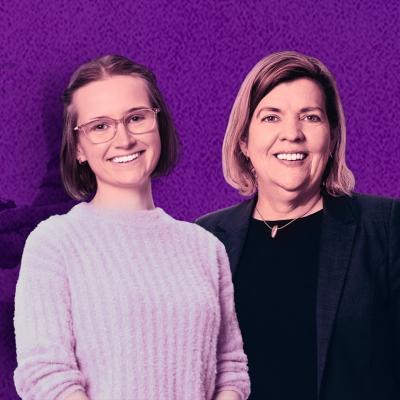Some people think social science jobs lack tangibility, but this couldn’t be further from the truth.
Studying social science isn’t just about sitting around, discussing social issues on a global scale (though this is certainly one critical aspect of it). It’s also about learning solid skills that will prepare you for a career in this important and rewarding field. We’re talking about how to conduct a public policy evaluation, draft a social impact statement and initiate community-led events.
Most importantly though, social science is about harnessing your passion for instigating real change in the world. This area of study will help you recognise and analyse injustices and social issues and put practical steps in place to address and resolve them.
So, if you’re wondering ‘what can I do with these skills?’ and ‘what careers are there in social sciences?’, we’ve got you covered. In this article, we’ll explore some of the social science degree jobs you could find yourself working in after graduation.
Social support
Case Manager
What is case management in community services?
Case managers working in community services coordinate care for their clients, help them to solve problems and empower them to make positive changes in their lives. Case managers work in a variety of sectors, including health, government and not-for-profit. Their role is closely linked to social work and focuses on identifying and working on the individual needs of a client.
What do case managers do?
- Interview clients to assess their needs.
- Connect clients with services to improve their quality of life.
- Maintain and file paperwork.
- Set goals in collaboration with clients.
- Conduct risk assessments.
Skills of a case manager include:
- aptitude for managing stakeholder relationships
- excellent listening skills
- proactive attitude
- understanding of different cultures, religions and viewpoints
- problem-solving skills
- being organised
- empathy.

Community development officer
What is a community development officer?
Community development is about creating collective action to respond to shared problems and bring about positive social change.
Community development officers (also known as community development workers) work in, for and with local communities to help people come together to:
- Identify and analyse issues of concern.
- Develop strategies for tackling these issues.
- Implement and evaluate those plans.
Spanning many industries, community development officers can work from a local neighbourhood scale to international projects. You’ll find this position in health, aged care, housing, Indigenous affairs and disaster relief, to name a few.
What does a community development officer do?
- Work closely with communities to identify problems and areas for improvement.
- Facilitate community discussions.
- Conduct focus groups.
- Recruit and train volunteers for events.
- Help plan events in collaboration with community groups.
- Build relationships with local businesses and secure sponsorships.
Community development officer skills include:
- relationship building
- excellent listening and communication skills
- networking
- ability to facilitate constructive discussions
- strong leadership skills
- teamwork
- transparency.
Build skills in community development with UQ’s Bachelor of Social Science, majoring in development.

Social research
Research officer
What is a research officer?
When it comes to social science jobs, the role of the social research officer may be one of the most broad. It's a varied field, investigating topics such as education, social welfare, unemployment, housing and access to health services.
A social research officer oversees research projects from ideation to completion and reporting. They identify problems or topics that could benefit from further investigation or clarity, where the findings will help an organisation to improve or better understand their services or product.
What does a social researcher do?
- Identify research goals.
- Establish research methods.
- Draft research proposals.
- Secure funding.
- Set and maintain budgets for research projects.
- Collect, record and analyse data.
- Conduct interviews.
- Compile literature reviews.
- Evaluate and report findings.
Social research skills include:
- analysis
- ability to overcome bias
- systematic
- attention to detail
- organisation skills
- patience.
If you're exploring social science jobs, you may also be interested in the types of careers you can get with a humanities degree.
Meet Cecilia, a research officer for the Aboriginal and Torres Strait Islander Community Health Service
Cecilia graduated from UQ’s Bachelor of Social Science, majoring in health and social policy, in 2021. She’s now working as a research officer for the Aboriginal and Torres Strait Islander Community Health Service.
Cecilia explains that the responsibilities of her role are guided by the research strategy and goals of the organisation, and that she can be working on any number of projects at the one time.
“My everyday tasks can include compiling literature reviews and systematic reviews, conducting qualitative research interviews and undergoing data linkage,” Cecilia says.
She attributes many of her research skills to her studies, revealing that the Bachelor of Social Science helped her to develop her knowledge of, and approach to, research design.
“The Bachelor of Social Science elevated my research skills tenfold,” she says.
“This program takes you through the design, planning and implementation of research projects, with a strong focus on the epistemology of analytical methods.”
Speaking highly of the versatility of content covered in the program, Cecilia would recommend this degree to anyone who wishes to take their career to new and exciting places.
“The various majors available provide such a broad range of units, such as political science, medical anthropology, and Indigenous health. I truly believe that this aspect of the program structure equips students to work in multidisciplinary spaces.”
Watch our video to discover what's possible when you study social science at UQ.
Social policy
Policy officer
What is social policy?
Social policy encompasses the study of social needs and the development of policies to address these needs and improve the welfare of citizens.
A social policy officer conducts research, develops policies, provides guidance and engages in advocacy work. Federal and state government are the primary employers of policy officers, though this role can also be found in healthcare and charity sectors.
What does a social policy officer do?
- Review existing policies to ensure they are up-to-date and relevant.
- Make recommendations for policy changes.
- Conduct social research.
- Assess policy impacts.
- Provide guidance and advice on policies and governance.
- Assist in the development of new policies.
Policy officer skills include:
- problem-solving
- critical thinking
- strong verbal and written communication
- time management
- eye for detail.
Develop your skills in social policy with UQ’s Bachelor of Social Science, majoring in health and social policy.
Meet Scott, a senior project officer for Queensland Health
Scott graduated from UQ’s Bachelor of Arts / Bachelor of Social Science (Honours) in 2018. He started out as a graduate policy officer with Queensland Government and worked his way up into a senior project officer role, and onto a manager position with Queensland Health.
Scott is now working on a significant reform project in Far North Queensland and values the diversity of tasks involved in his role on a daily basis.
"I think the variety of work means you can really tailor your experience to what suits you and how you want to build your own skills and knowledge,” says Scott.
“There is also a lot of flexibility and unexpected opportunities. I have recently had the very rewarding opportunity to work in a non-government peak body in Queensland.”
“This has been a great learning experience for me and really broadened my knowledge and perspective and allowed me to work closely with service providers and develop stronger policy advocacy skills.”
Scott reveals that one of the most important skills in his role is the ability to recognise his audience and tailor his work to suit their needs.
“You often have to communicate complex ideas and information in a concise and engaging way for audiences that have very different levels of familiarity and expertise,” he says.
When it comes to the breadth of professional experiences he has collected since graduation, Scott believes the Bachelor of Social Science set him on the right course to secure such opportunities.
“Social Science has provided important transferable skills that have allowed me to try new and different experiences,” he says.
“The ability to rapidly find and synthesise high-quality evidence and turn it into a policy piece has been one of the greatest strengths the Bachelor of Social Science has given me.”
Want to know more about the types of careers you can pursue with a university degree in humanities and social sciences?
This article has been updated since its original publish date to ensure accuracy of information. The views, opinions and details of the people featured in this article are true as of 23 February 2023.







